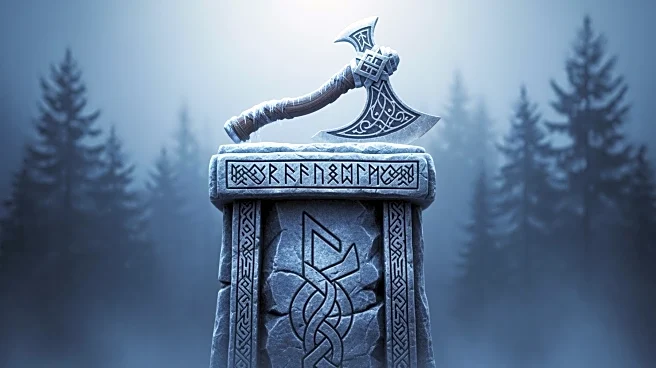What's Happening?
Tottenham Hotspur has announced that the club is not for sale following the withdrawal of a third prospective buyer. Brooklyn Earick, leading an American consortium, confirmed he would not bid for the club, joining previous bidders who had also withdrawn. The club's board, led by majority shareholders ENIC group, had previously rejected expressions of interest from other consortiums, including those led by Dr Roger Kennedy and Wing-Fai Ng through Firehawk. The Lewis family, committed to owning Tottenham, looks forward to a period of stability and long-term success. The club is no longer in an offer period under the City Code on Takeovers and Mergers.
Why It's Important?
The decision to keep Tottenham Hotspur under current ownership is significant for the club's stability and future planning. With the Lewis family committed to long-term success, the club can focus on its strategic vision without the distraction of potential takeovers. This stability is crucial for maintaining fan confidence and ensuring consistent performance on the field. The withdrawal of bidders also highlights the challenges and complexities involved in acquiring a major football club, especially one with private investors holding shares.
What's Next?
With the club not for sale, Tottenham Hotspur will continue to focus on its vision and future under the current ownership. The leadership, including CEO Vinai Venkatesham, will aim to build on the foundations laid by former executive chairman Daniel Levy. The club's management will likely prioritize strengthening the team and achieving success in domestic and international competitions. The Lewis family's commitment suggests a focus on sustainable growth and development, potentially leading to new investments in infrastructure and talent.
Beyond the Headlines
The decision to keep Tottenham Hotspur under current ownership may have broader implications for the football industry, particularly in terms of club ownership models. It raises questions about the role of private investors and the impact of ownership stability on club performance. Additionally, the rejection of bids could influence other clubs considering ownership changes, highlighting the importance of strategic alignment between owners and club management.










